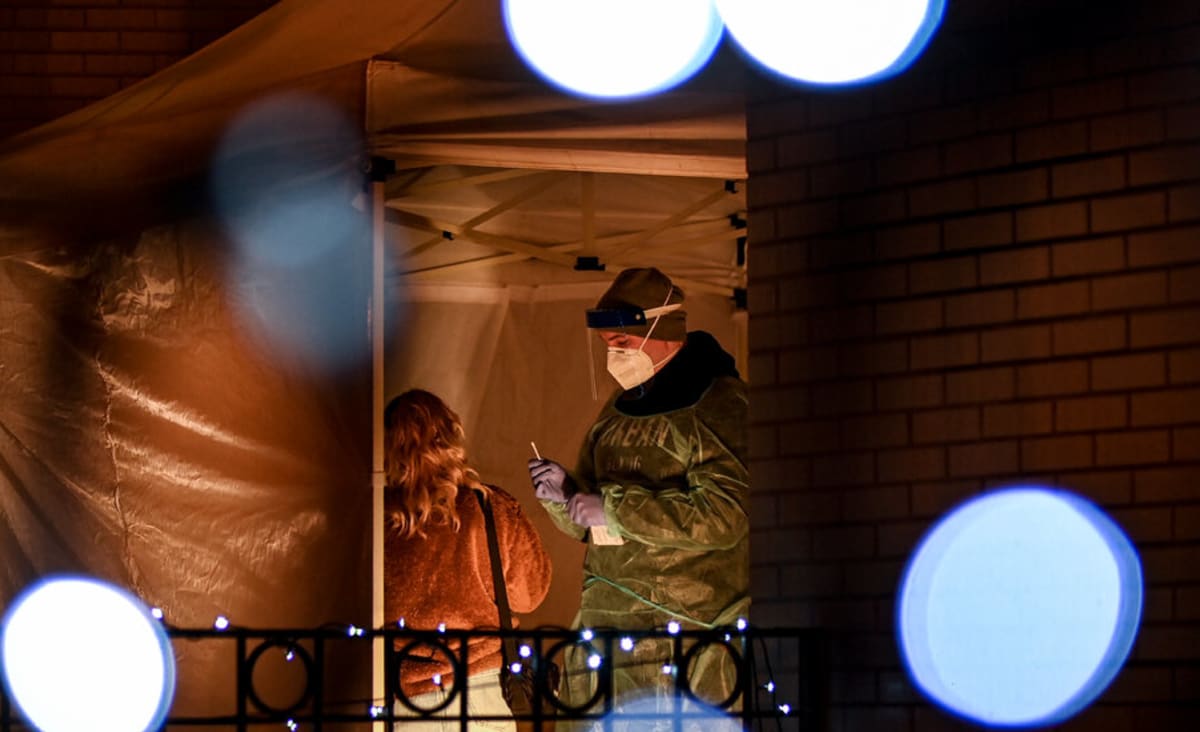This post may refer to COVID-19
To access official information about the coronavirus, access CDC - Centers for Disease Control and Prevention.

www.nytimes.com
With Omicron’s Rise, Americans Brace for Returning to School and Work
The highly contagious variant has already contributed to flight cancellations and staffing shortages.
Health
In two short weeks, as the year closed out, the Omicron variant drove coronavirus case counts to record levels, upended air travel and left gaping staffing holes at police departments, firehouses and hospitals.
And that was at a time many people were off for the holiday season. Now comes Monday, with millions of Americans having traveled back home to start school and work again, and no one is sure of what comes next.
Most of the nation’s largest school districts have decided to forge ahead and remain open, at least for the time being, citing the toll that remote learning has taken on students’ mental health and academic success. And the rising number of cases has not yet been followed by a proportionate increase in hospitalizations and deaths, though hospitalizations have increased in recent days — a sign that the Omicron variant seems to cause fewer cases of severe illness.
But the highly contagious variant is still racing across the country, and teachers, parents and workplaces are bracing for the impact.
“I figured that over these two weeks of break, everyone has been everywhere visiting everybody,” said Teresa Morrison, 48, who plans to keep her 8-year-old daughter Tristan, who suffers from severe bronchitis, from attending in-person classes in San Antonio. “So I really just anticipate January to be a disaster.”
The rapid spread of the Omicron variant has left companies across industries — from meatpacking to retail — with a thinning work force, especially after months of record high resignations. Thousands of flights have been canceled and National Guard troops have been activated to help staff hospitals.
The spiking case counts have also flummoxed the dozens of companies that sent their employees to work from home in March 2020, as Covid was first sweeping the country. Some offices that had reopened advised workers to stay home. Others, including major companies like Apple and Google, have extended their work-from-home arrangements.
In schools, the spread of Covid-19 has been limited, but Omicron has renewed some fears just as a sense of normalcy seemed within reach.
For many teachers, students and parents, the fall semester had seemed promising. By mid-December, Brayden Boren, a high school English teacher in San Antonio, had begun to feel as if an end to the long, exhausting battle against the pandemic was within sight.
Then Omicron arrived in Texas. By the week of Dec. 11, it accounted for about 25 percent of all new infections, according to state data. A week later, it spiked to 85 percent. In the past two weeks, the number of new cases being reported each day in Texas has increased by 240 percent.
Mr. Boren, 27, who has not had the virus, saw it all around him. “Even in my small, little friends group, they were popping up, one by one by one,” he said. “No one was really getting it, until now.”
Now, Mr. Boren is questioning whether a return to in-person learning makes any sense. “It’s a hard time to be a teacher. How far can we push ourselves?”
Health officials have warned that the unvaccinated remain most at risk of severe illness or death from Omicron. More than 70 percent of people 12 and older in the United States are fully vaccinated, according to the C.D.C. About a quarter of children between ages 5 and 11 have received at least one dose of a vaccine. Children under 5 are still not eligible for them.
For business leaders, the constant change in public health conditions and guidelines has meant acclimating to a new level of flexibility. “They don’t give you a playbook at Harvard Business School on the pandemic,” said Yancey Spruill, chief executive of the tech company DigitalOcean, which told its staff it will allow remote work indefinitely.
























































